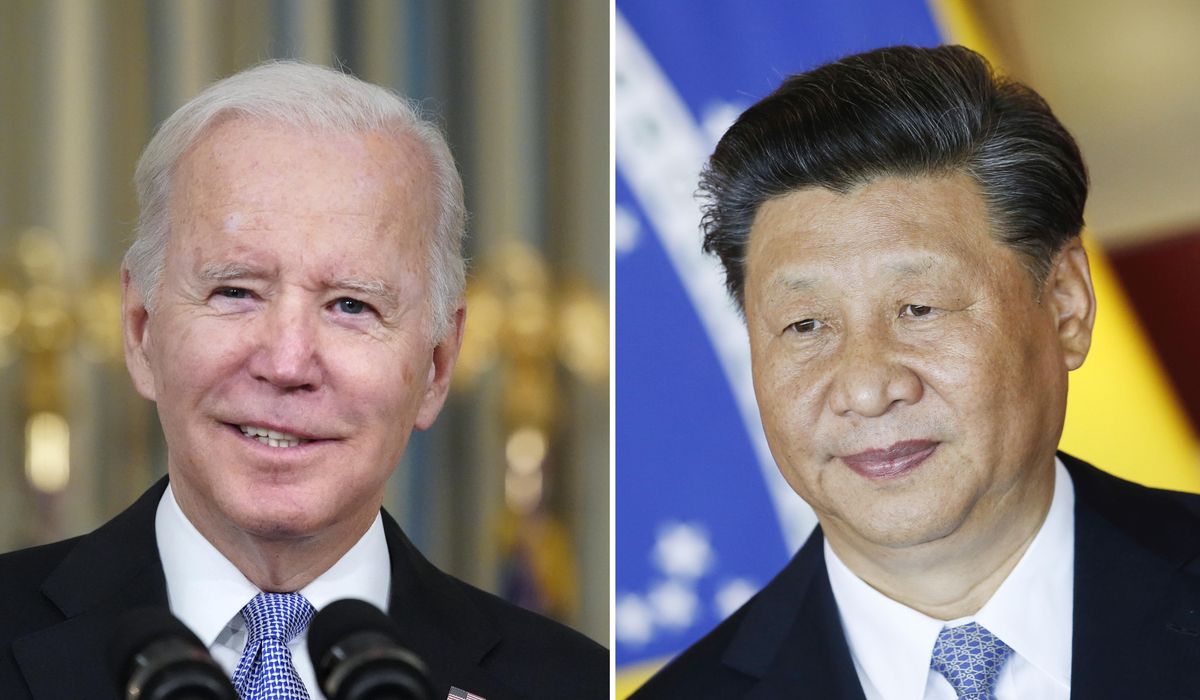

America may still be the world’s lone superpower, but it has lost its capacity to manage the challenge of a rising China.
So says Michael Pillsbury, the Mandarin-speaking former high-level U.S. official well known for staking out controversial — if often prescient — views on the future of U.S.-China competition.
Mr. Pillsbury, a prolific author and analyst who advised in some capacity every president since Richard Nixon, says the U.S. and China are so economically intertwined that the prospect of a major clash remains low.
<!– Temp removal of in article reco
End comment –>
But U.S. administrations of both parties have thus far failed to confront the reality of Beijing‘s thirst for power and global influence. That was the core message Mr. Pillsbury delivered Wednesday at “The Washington Brief,” a virtual panel event hosted by The Washington Times Foundation.
“Do we have the capacity as a country, as a government, to manage China at all anymore?” Mr. Pillsbury asked during the event broadcast online on Tuesday.
“I would argue we do not,” he said, asserting that Washington currently is consumed by a hamstringing debate over China policy and the extent to which the Chinese government seeks to challenge or overtake America on the global stage.
As a result, Mr. Pillsbury said, Washington has limited itself to engaging in “pinpricks” aimed at constraining China, most recently with the Biden administration’s decision to stage a “diplomatic boycott” of the upcoming Winter Olympics in Beijing to protest China‘s human rights record.
The U.S. also engages in “virtue-signaling” over such issues as China‘s policies against the Uyghurs and other ethnic and religious minorities, he said. But when it comes to policy that could change Beijing‘s behavior, there is simply too much U.S. economic engagement with China to risk true confrontation.
The result: Think tanks, China scholars and advocacy groups produce hundreds of proposals to shape Beijing‘s behavior, and “almost none of them has passed the Congress,” Mr. Pillsbury said.
“The House Republican Task Force on China produced a long report, 400 recommendations, many of which were just asking the executive branch for reports,” he said. “The [congressionally chartered U.S.-China Economic and Security Review Commission] every year [puts forward] as many as 50 recommendations, most of which are not acted on by their own account.”
“My thesis [is] that we have self-paralysis in Washington,” he said. “Maybe I’m wrong. Maybe we can take stronger action, maybe we’ll get the idea of what needs to be done to manage China‘s ambitions. Maybe we’ll develop a consensus on what China‘s ambitions are.”
“But I’m quite pessimistic,” Mr. Pillsbury said, asserting that while Washington is gripped by a “kind of confusion,” a group of “nationalistic hawks” have gained power under increasingly powerful and assertive Chinese President Xi Jinping.
“They seem to be quite influential under Xi,” he said, adding that the Chinese hawks believe America’s “decline is a lot faster than most Americans think.”
Mr. Pillsbury is director for Chinese strategy at the Hudson Institute in Washington. His 2015 book “The Hundred-Year Marathon: China‘s Secret Strategy to Replace America as the Global Superpower,” was a bestseller.
During Tuesday’s panel, he described himself as a former “panda-hugger,” who spent the early years of his career pushing for engagement with China and even advocating for weapons sales and intelligence-sharing with Beijing.
The panel featured discussion on Beijing‘s aggression toward Taiwan, as well as Trump-era trade friction and last year’s trade deal that intended to open Chinese markets to more American companies, particularly in the financial sector.
Joseph R. DeTrani, a former CIA official and longtime diplomatic adviser on U.S. policy in Asia, questioned whether Mr. Pillsbury was being too pessimistic with his view that a U.S.-China struggle for supremacy is inevitable.
“Why can’t there be peaceful coexistence?” asked Mr. DeTrani, who noted the depths of U.S.-China engagement, including more than $600 billion in annual trade between them. “Why can’t there be elements of disagreements and debate while there are still elements of cooperation?”
Mr. Pillsbury responded that the “simplest short answer is because of the hawks in Beijing at the top.”
At the same time, Mr. Pillsbury said, relations between the U.S. and China are far from melting down. “We’re a long way,” he said, “from a Cold War or some kind of crisis in U.S.-China relations in my view.”
